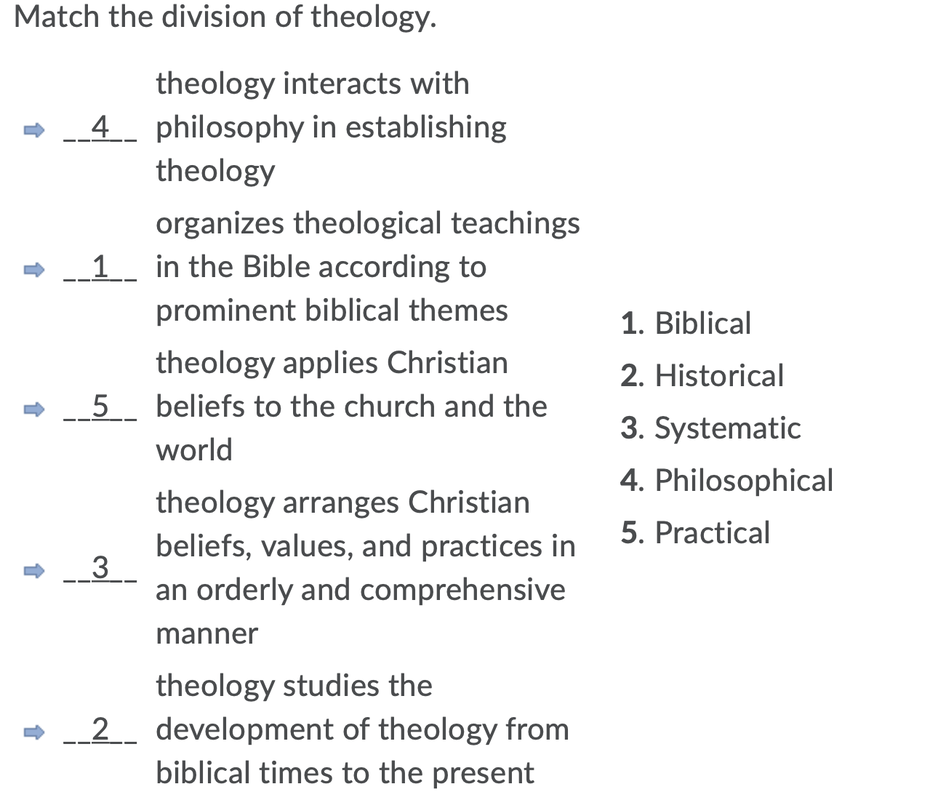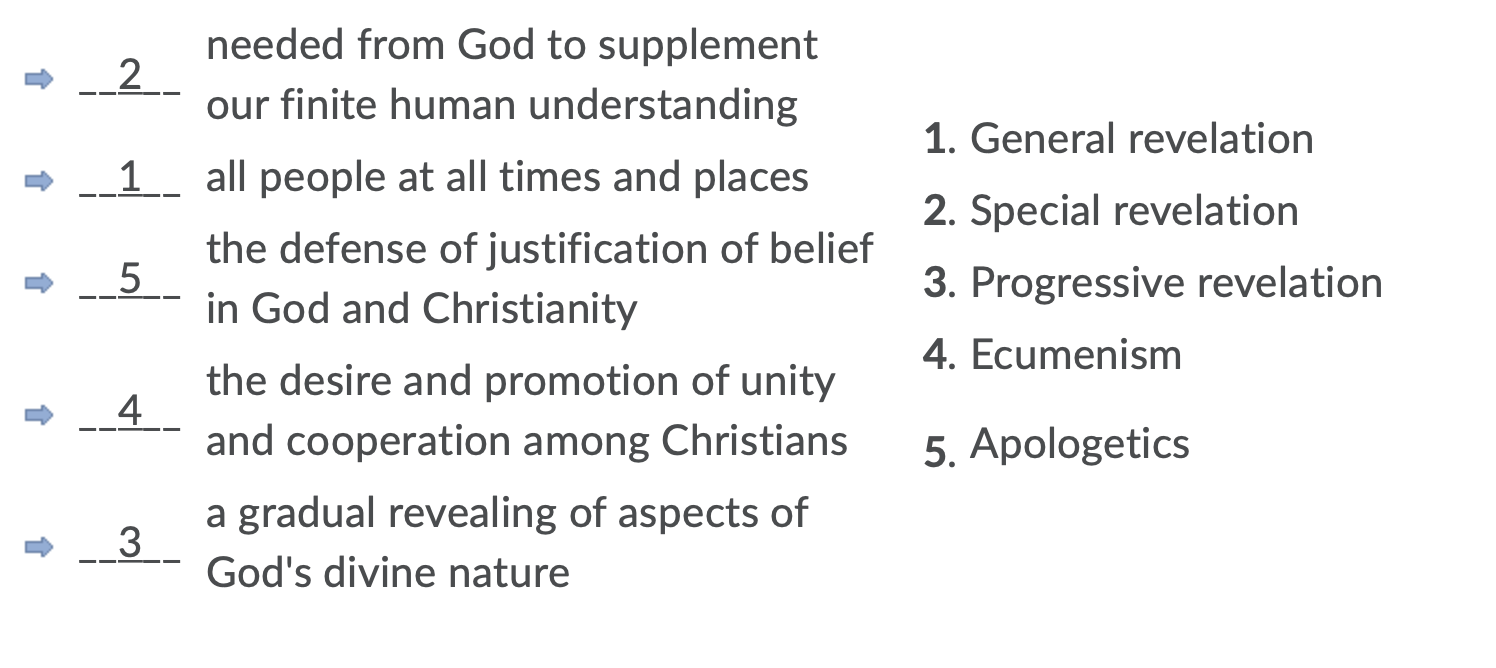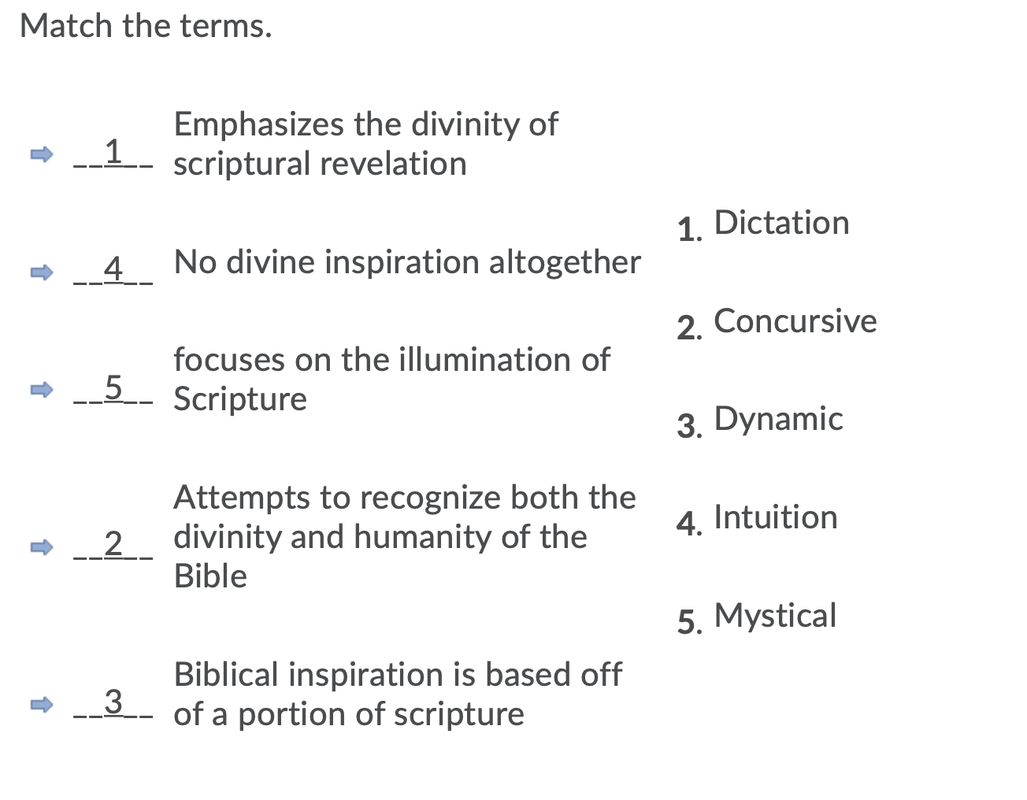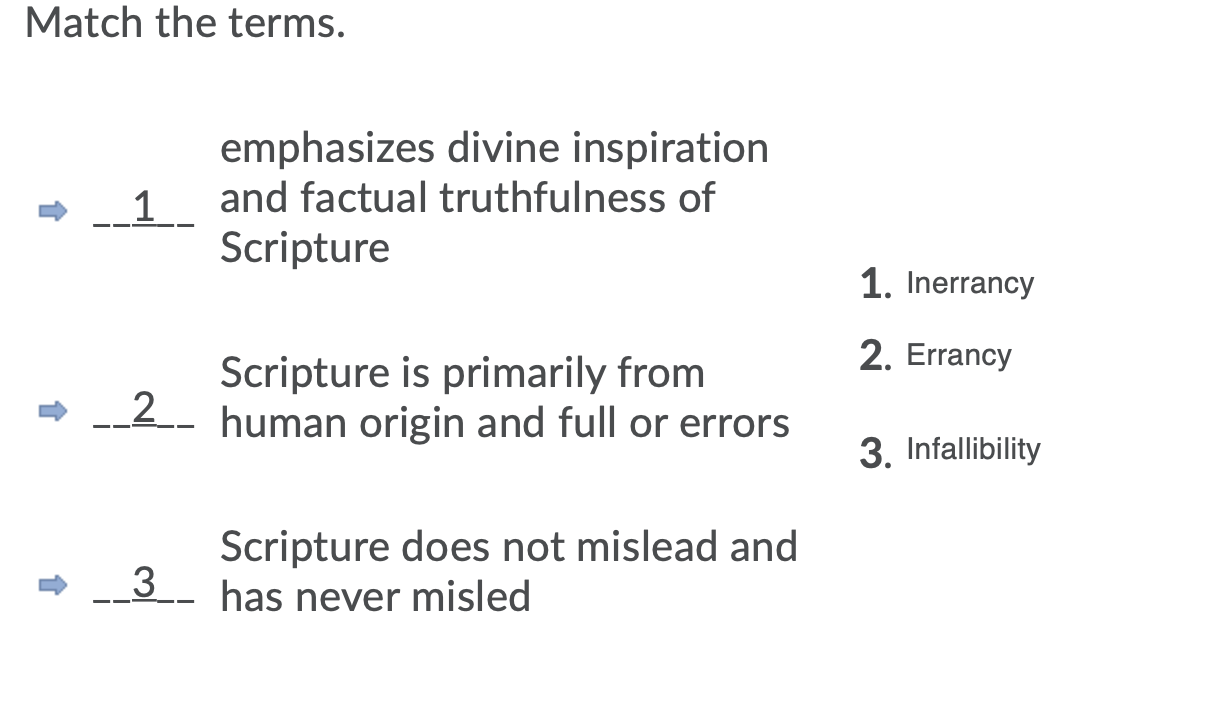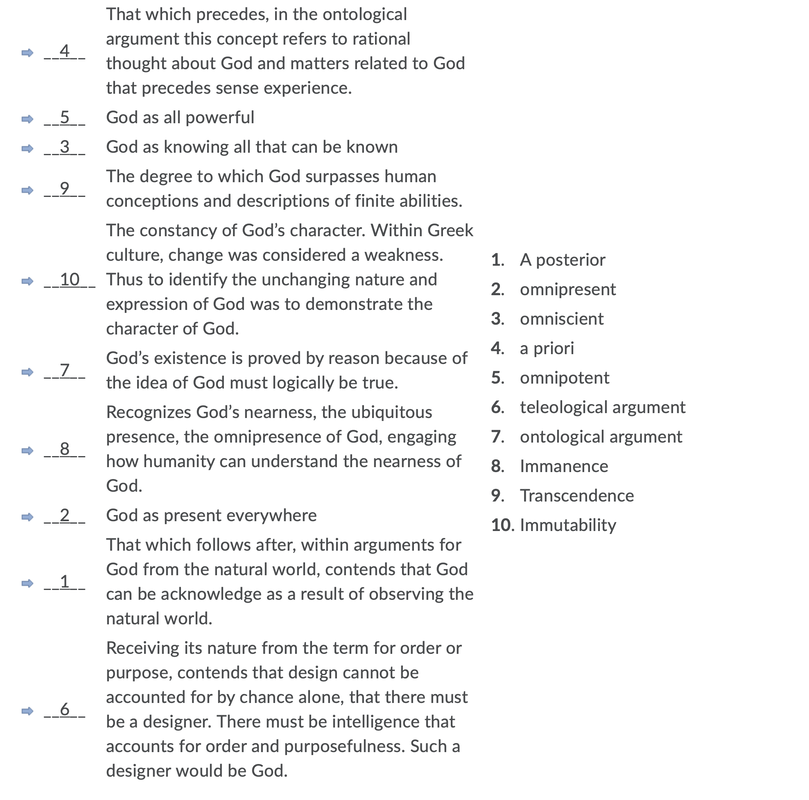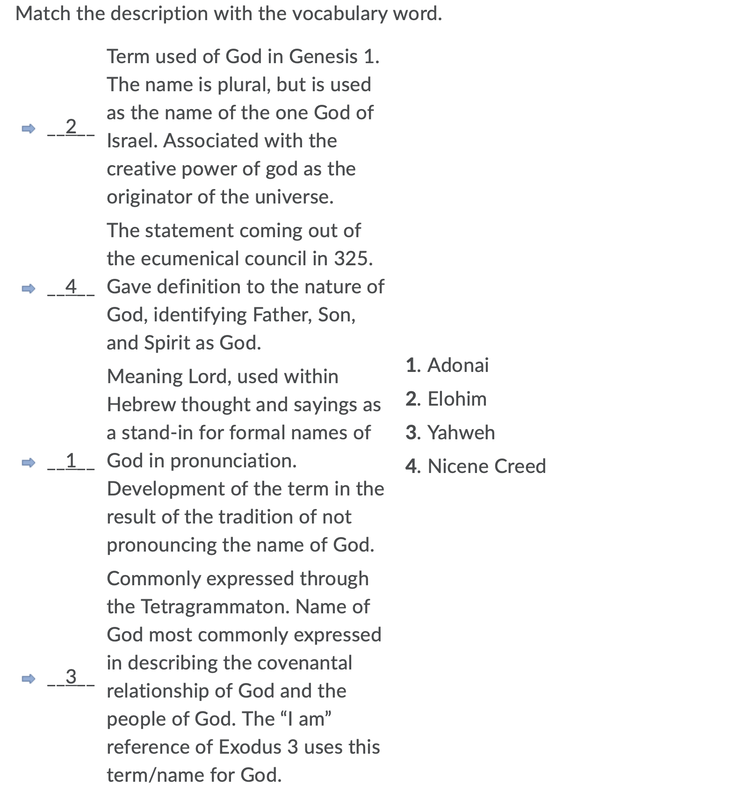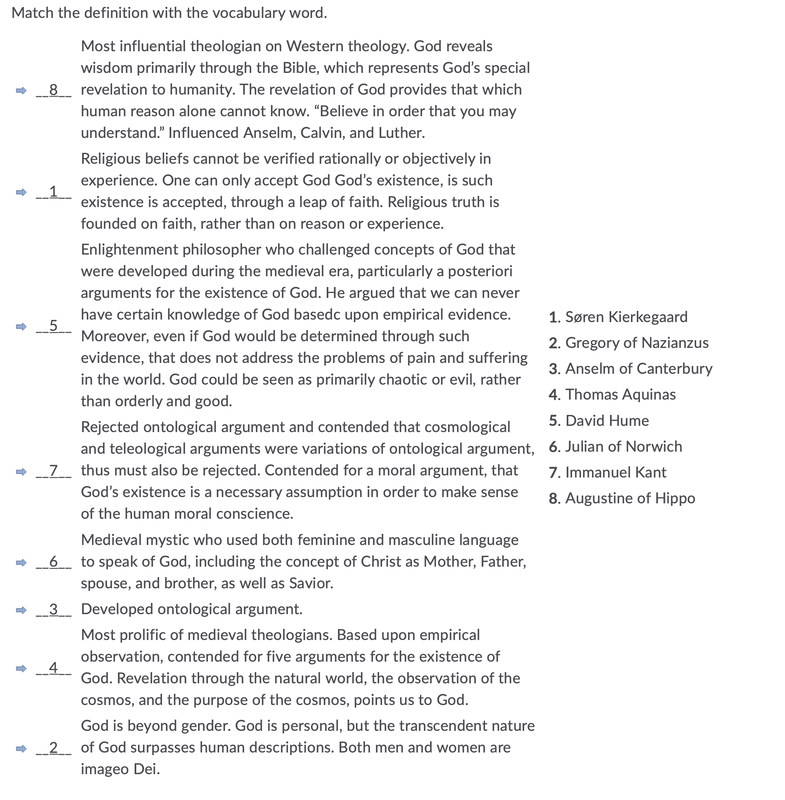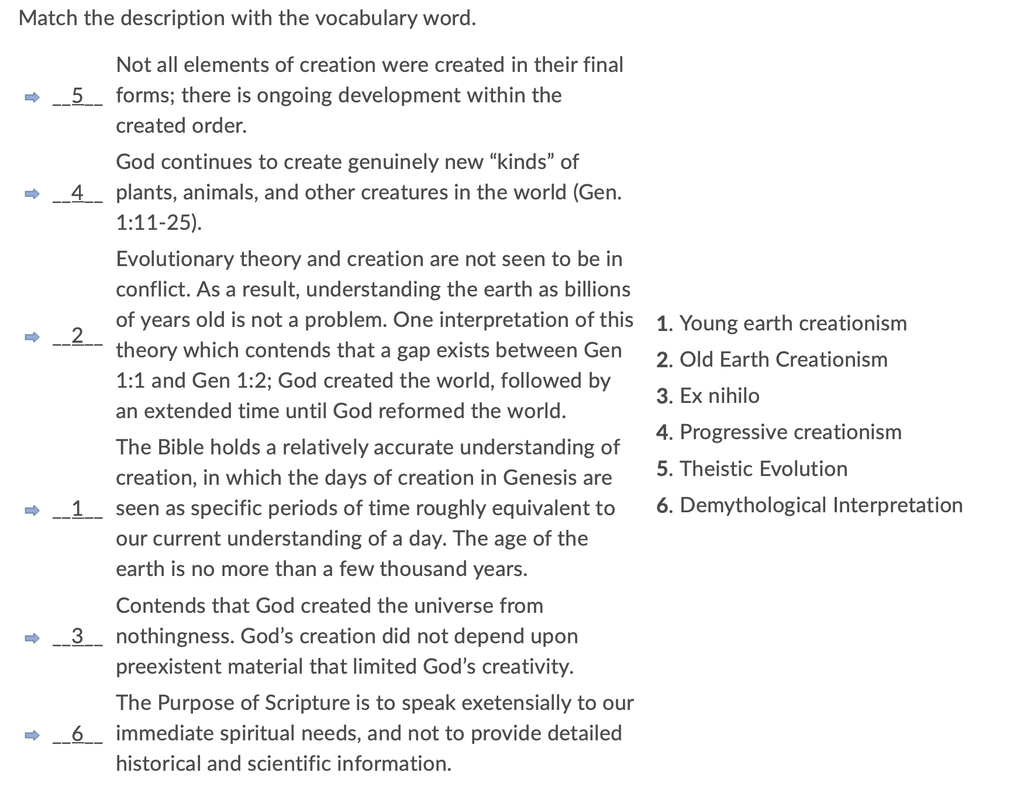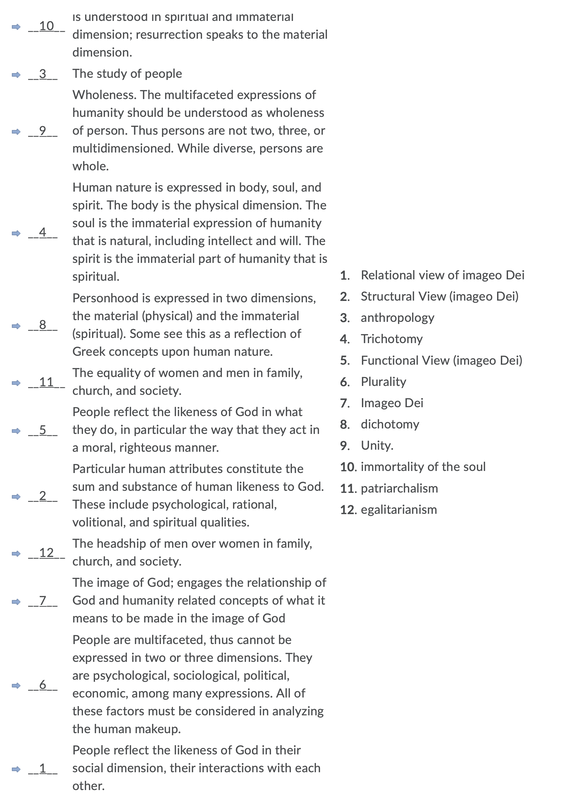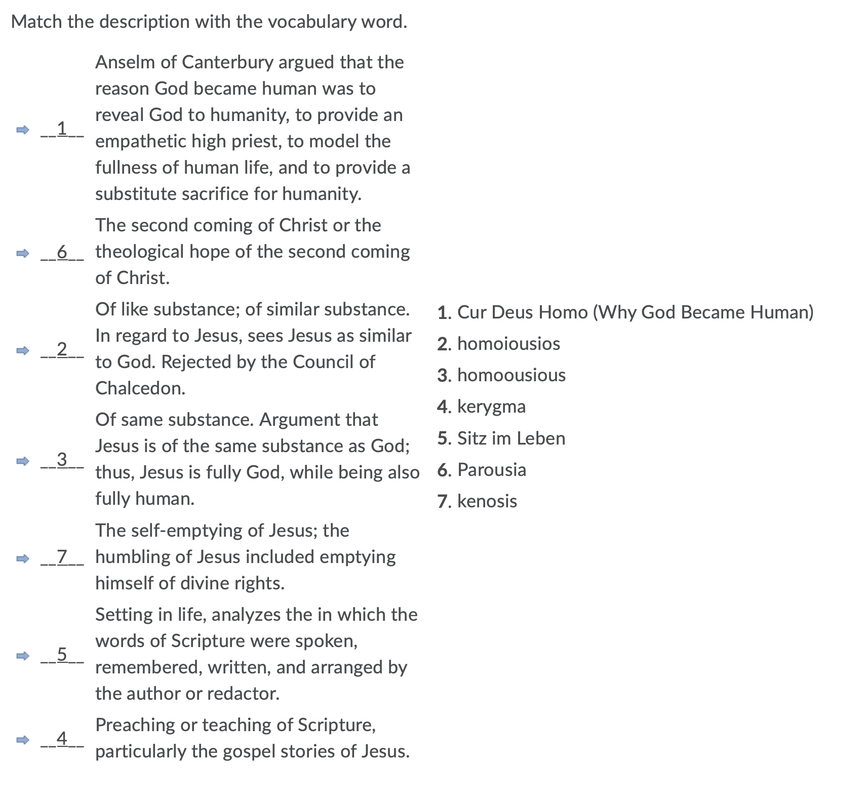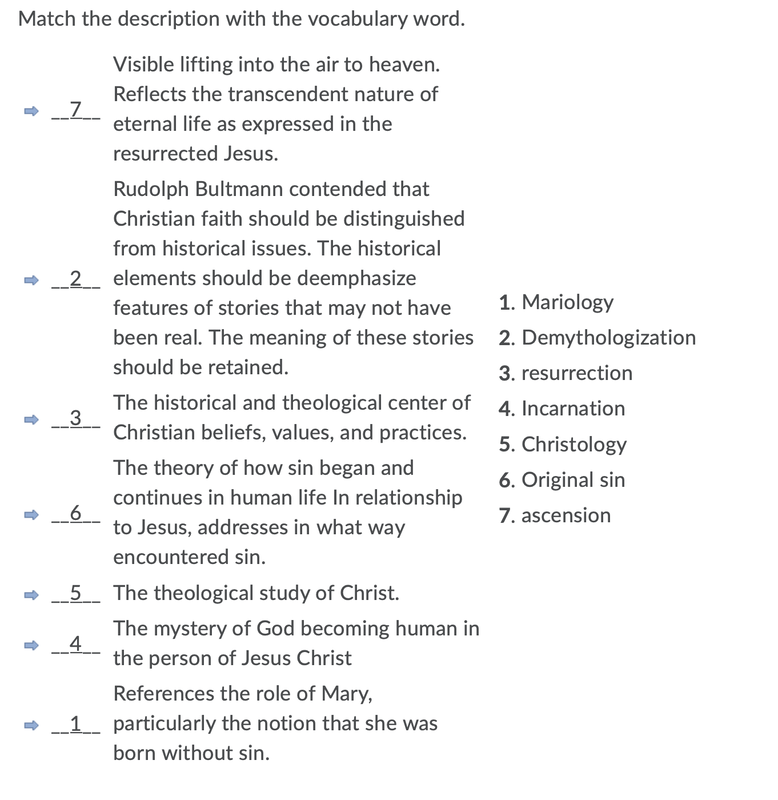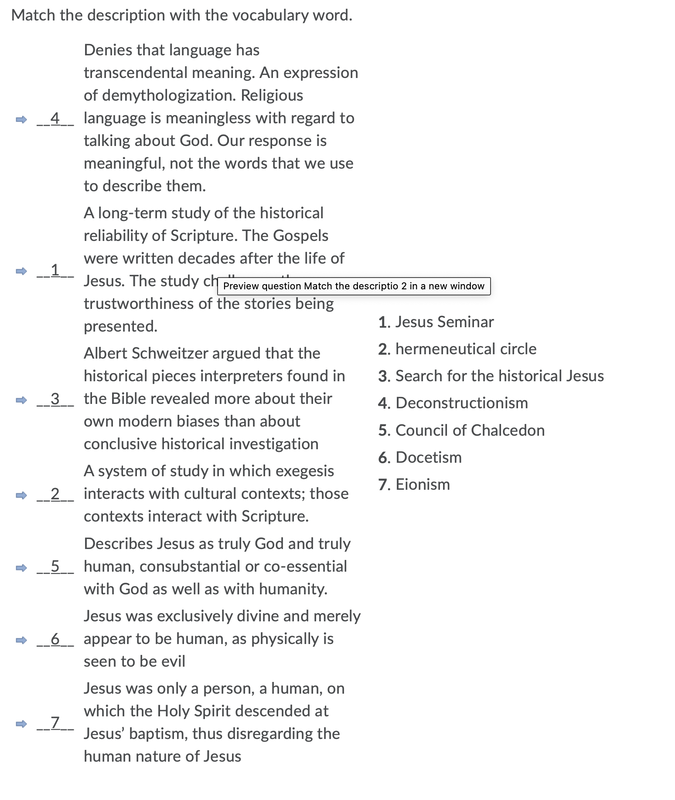Week 1
Session 1
Session 3: Videos:
- Philosophy.
The class is discussion driven. I will ask an abundance of what and why questions. What promotes identification, why stimulates discovery, and results in maturity. I will also ask lots of follow up questions to generate deeper learning. - Class flow
Session 1: Discuss readings (except week 1). Have one meaningful quote from any of the current week’s readings (Thorsen, Green, AG papers) ready to share in class. Share why it was meaningful. Does not have to be earth-shattering revelation.
Session 2: Review Foundation studies
Session 3: View subject related videos - Books and resources
- Thorsen, Don. An Exploration of Christian Theology. Grand Rapids: Baker Academic, 2020.
- Green, Chris E. W. Surprised by God: How and Why What We Think About the Divine Matters. Eugene, OR: Cascade Books, 2018.
- AG Position papers (linked in syllabus)
- www.GreatCommission.com Learn how to store it as an icon on your desktop.
- Out of class work.
- Weekly readings: Thorsen, Green*, and AG Position Papers*. *Most weeks.
- Weekly quizzes; Explained in syllabus. Hint; use search and glossary with key words for help. Even then, you might never know the answer to question 2 for Quiz #1 is 1). All answers will be on final exam! Store the right answers on flash cards!z
- Assignments
- Summary Papers on AG Position papers: Weeks 2,4,5,8. Format and content is explained.
- Book Review (Green): Week 7. Format and content is explained.
- Final Exam: More detailed information to come.
- Final Exam: More detailed information to come.
- Writing style: Turabian (Chicago) https://www.chicagomanualofstyle.org/turabian.html
- Late work policy. Read it. Know it. Do it. (Page 6)
- Grading will be done within the seven days of due date.
Session 3: Videos:
- What is the Bible? (5:47) Bible Project
- The Story of the Bible (5:37) Bible Project
- Literary Styles in the Bible (5:27) Bible Project
- Ancient Jewish Meditation Literature (4:30) Bible Project
- Plot in Biblical Narrative (5:12) Bible Project
Week 2
Session 1. Readings. Thorsen 1,2,5. Green 1,2
Quotes from your reading. What stood out to you and why?
Quotes from readings in general.
Session 3: Videos
Session 1. Readings. Thorsen 1,2,5. Green 1,2
Quotes from your reading. What stood out to you and why?
Quotes from readings in general.
- All of us are “practicing theologians” when we think to ask about God or any matters related to God…All of us are doing theology when God becomes a part of our considerations. Thorsen, Don. An Exploration of Christian Theology (p. 4). Baker Publishing Group. Kindle Edition.
- Theology is not self-sealing. That is, it remains open to new insights about the truth of the Christian message and to its applications for every new generation. In this sense, theology is always reforming, just as the Protestant Reformers intended. Thorsen, Don. An Exploration of Christian Theology (p. 7). Baker Publishing Group. Kindle Edition.
- When some consensus over particular beliefs and practices has been achieved in church history, that consensus will be our focus. When no consensus has been reached, a variety of viewpoints will be presented. Thorsen, Don. An Exploration of Christian Theology (pp. 10-11). Baker Publishing Group. Kindle Edition.
- Long ago God spoke to our ancestors in many and various ways by the prophets, but in these last days he has spoken to us by a Son, whom he appointed heir of all things, through whom he also created the worlds. Hebrews 1:1–2 Thorsen, Don. An Exploration of Christian Theology (p. 13). Baker Publishing Group. Kindle Edition. How would you complete this verse for today?
- Revelation was progressive as it was being written. But is now closed. Cf. Revelation 22:18-19, Proverbs 30:6, Dt. 4:2, 12:32
- Revelation was progressive as it was being written. But is now closed. Cf. Revelation 22:18-19, Proverbs 30:6, Dt. 4:2, 12:32
- General revelation is of minor importance because it is insufficient for salvation. General revelation only pricks the conscience of people; it does not provide the way of salvation. Thorsen, Don. An Exploration of Christian Theology (p. 16). Baker Publishing Group. Kindle Edition.
- Scripture remains important because it still contains the words of God. However, it is intermingled with human elements of superstition and error. One may critically study Scripture in order to discern truth in it, but the apprehension of truth depends on the personal illumination that an individual experiences. Thorsen, Don. An Exploration of Christian Theology (p. 18). Baker Publishing Group. Kindle Edition.
- If we believe we are responsible to manage our own futures, if we feel we can and should control what happens to us and to those around us, if we remain at the mercy of our own passions and the pressures of the powers of this age, then we are sure to live—and to cause others to live—from terror to terror and not from grace to grace. Green, Chris E. W.. Surprised by God: How and Why What We Think about the Divine Matters . Cascade Books, an Imprint of Wipf and Stock Publishers. Kindle Edition.
- Contemplation moves us beyond thinking of God as useful, as if he were a resource we draw on to make our lives what we have been told they should be. It reminds us that we are meant for more than getting things done and having things done to us. Green, Chris E. W.. Surprised by God: How and Why What We Think about the Divine Matters . Cascade Books, an Imprint of Wipf and Stock Publishers. Kindle Edition.
- Silent, contemplative prayer is at the heart of the contemplative life, and we all would do well to practice it. Green, Chris E. W.. Surprised by God: How and Why What We Think about the Divine Matters . Cascade Books, an Imprint of Wipf and Stock Publishers. Kindle Edition.
- We have been so obsessed with the mechanics of living the Christian life, focusing our attention on the demands of ministry and the dynamics of spiritual experience, that we’ve lost touch with who it is we call by this name “God”… Green, Chris E. W. Surprised by God: How and Why What We Think about the Divine Matters . Cascade Books, an Imprint of Wipf and Stock Publishers. Kindle Edition.
- God (as you really are) rid us of God (as we imagine you to be). Green, Chris E. W. Surprised by God: How and Why What We Think about the Divine Matters . Cascade Books, an Imprint of Wipf and Stock Publishers. Kindle Edition.
Session 3: Videos
- Why is Theology So Important? (3:20) Kevin DeYoung
- Does Doctrine Matter (3:24) Crossway
- Biblical Authority in an Age of Uncertainty (6:27) The Gospel Coalition
- Why Theology is Important (3:46) Thabiti Anyabwile
- Why Does Theology Matter (0:58)
- What is progressive Christianity? (2:58) Oneminuteapologist
- What’s The Right Way To Help The Poor? (2:34) Oneminuteapolgist
- What Does It Mean To Be Woke? (2:21) Oneminuteapologist
- Critical Race Theory and Systemic Racism with Voddie Baucham (29:38) Got Questions
- Is Critical Theory Biblical? (5:48) What Would You Say
- John MacArthur on C.R.T. and Social Justice Movement (11:13) First Baptist Church Mesquite NV
Week 3
Session 1. Reading Discussion.
Quotes from your reading. What stood out to you and why?
Quotes from readings. Thorsen 3-4, Green 5, Position paper: Inspiration.
Session 2: Foundation Study
Session 3: Videos
Quotes from your reading. What stood out to you and why?
Quotes from readings. Thorsen 3-4, Green 5, Position paper: Inspiration.
- From the Catholic perspective, the Magisterium possesses this authoritative role committed to the church, manifesting the power to determine proper beliefs, values, and practices… Therefore, the authority of Scripture does not supersede that of the church and its historic traditions. Thorsen, Don. An Exploration of Christian Theology (p. 25). Baker Publishing Group. Kindle Edition. Thorsen, Don. An Exploration of Christian Theology (pp. 24-25). Baker Publishing Group. Kindle Edition.
- Descartes put forth the famous phrase, “I think, therefore I am.” From this certitude, he reasoned through intuition and deduction that God exists; however, Descartes argued that traditional ideas about God may need revision. Thorsen, Don. An Exploration of Christian Theology (p. 27). Baker Publishing Group. Kindle Edition.
- Religion, especially Christianity, was progressively challenged by the skepticism of the Enlightenment. Thorsen, Don. An Exploration of Christian Theology (p. 29). Baker Publishing Group. Kindle Edition.
- In contrast to previous worldviews that conceived of everything in terms of “being,” Whitehead conceived of reality in terms of “becoming.” Thorsen, Don. An Exploration of Christian Theology (pp. 29-30). Baker Publishing Group. Kindle Edition.
- Other liberationist theologies continue to arise. Among them are womanist theologies that advocate liberation from the unique oppression of women of color. Thorsen, Don. An Exploration of Christian Theology (p. 31). Baker Publishing Group. Kindle Edition.
- Regardless of one’s viewpoint, however, one must delineate the relationship between the various religious authorities that at one time or another have included Scripture, tradition, reason, and experience. Thorsen, Don. An Exploration of Christian Theology (p. 34). Baker Publishing Group. Kindle Edition.
- Historically, most Christians have said that the canon is closed. Scripture is thought to be sufficient for salvation and all other matters pertaining to Christian beliefs, values, and practices. To be sure, God could do whatever God wants; however, advocates of a closed canon argue for the sufficiency of the Scripture that we have. On the other hand, Christians who argue for an open canon want to preserve the notion of God’s dynamic, continuing interaction with humanity through the Holy Spirit. Theoretically, at least, the canon of Scripture should be viewed as open. Thorsen, Don. An Exploration of Christian Theology (p. 40). Baker Publishing Group. Kindle Edition.
- Archaeology, for example, has cast doubts on the historical and geographical accuracy of Scripture. Thorsen, Don. An Exploration of Christian Theology (p. 44). Baker Publishing Group. Kindle Edition.
- How To Read The Bible For All It’s Worth, Gordon D. Fee and Douglas Stuart
- How To Read The Bible For All It’s Worth, Gordon D. Fee and Douglas Stuart
- Certainly, people must decide for themselves what Scripture means to them in terms of its revelation of truth. Thorsen, Don. An Exploration of Christian Theology (p. 50). Baker Publishing Group. Kindle Edition.
- Everything depends on our seeing—and our not-seeing. Green, Chris E. W.. Surprised by God: How and Why What We Think about the Divine Matters . Cascade Books, an Imprint of Wipf and Stock Publishers. Kindle Edition.
- We are ever at risk of leaning on our own understanding while assuming that we are trusting in the Lord. [Read 1 Corinthians 8:2-3] Green, Chris E. W.. Surprised by God: How and Why What We Think about the Divine Matters . Cascade Books, an Imprint of Wipf and Stock Publishers. Kindle Edition.
- We must have our eyes opened so that we can see the glory of God, but also that we must be blinded to the vainglorious illusions of the world. Green, Chris E. W.. Surprised by God: How and Why What We Think about the Divine Matters . Cascade Books, an Imprint of Wipf and Stock Publishers. Kindle Edition.
- The Scriptures are inerrant because they are inspired of God—not inspired because they are inerrant. The first approach is biblical and leads to a correct view of inspiration and infallibility; the second approach is rationalistic and opens the door to human speculations. Position Paper: Inspiration.
- Moreover, the Scriptures are not simply one authority among others; they are the final authority…We grant absolute primacy to the biblical revelation, assured that it will guide us into all truth. Position Paper: Inspiration.
Session 2: Foundation Study
Session 3: Videos
- Can we trust the 66 books of the Bible? (1:32) John Piper
- The Authority of Scripture (1:48) Tim Keller
- What It Means The Bible Is Self-Authenticating.(3:05) The Gospel Coalition
- Is The Bible Truly God’s Word? (4:25) Got Questions?
- Inerrant vs Infallible (1:52) John MacArthur
- How Did We Get The Bible (3:30) 3 Minute Theology
- Why you can rely on the canon, (8:43) the Gospel Coalition
- The Story of the Bible in a nutshell, (4:23) David Platt
- How is the Bible divinely inspired? (3:30) Three Minute Theology
- What is inerrancy? (3:30) Three Minute Theology
- What is divine revelation? (3:30) Three Minute Theology
- Is the Bible infallible? (3:15), Dr. Brown
- No, the Church Didn’t Create the Bible (5:59) The Gospel Coalition
- What does “Inspiration” mean in 2 Timothy 3:16 (4:36), Ligonier Ministries
- Why is the Bible reliable? (5:37) Tim Keller, The Veritas Forum
- Carson and Kruger, Persistent Myths about the New Testament, (6:57) The Gospel Coalition
- Miguel Nunez on Whether We Can Trust the Bible, (5:27), the Gospel Coalition
- What is the purpose of the Bible? (3:09) David Platt
- Why is it so important to believe in biblical inerrancy? (6:03) GotQuestions
- Top Three Reasons the Bible is Reliable (3:36) J. Warner Wallace
- Why Should I Believe The Bible (7:11) GotQuestions
Week 4
Session 1. Discuss readings. Thorsen 6, 8 -9, Green 4
Comments from your readings.
Discussion about class readings.
Thorsen chapter 6.
Session 2. Foundation Study.
Session 3. Videos.
Comments from your readings.
Discussion about class readings.
Thorsen chapter 6.
- Statistically, most people believe in God. In what different ways do they conceive of God? Try to create a list of ten as a class.
- Look over the Descriptions of God (page 69ff). What characteristics do you most appreciate about God? Explain. What characteristics are least appreciated about God? Explain.
- Which arguments for the existence of God do you find most convincing?
- Ontological. “God’s existence is proved by reason, because the Christian idea of God must logically be true.” (p. 90)
- Cosmological. “God must exist as the prime, unmoved mover of the universe.” (p. 92)
- Teleological. “Design cannot be accounted for by chance alone. Instead, there must be intelligence that accounts for its order and purposefulness. God must exist as the designer of the universe.” (p. 92)
- Volitional. “Belief in God’s existence is a matter of volition (the act of willing, or choice), rather than a matter of reason (rational reflection) or experience (empirical investigation).” (p. 94)
- Pragmatism holds that truth is that which has practical value for a person’s life. The truth of an idea is established through its ability to “work” on behalf of the individual.” (p. 95). How significant is prgramatism today? What advice would give a Christian whose faith doesn’t “work?”
- “People often dislike talking about judgment as one of the primary works of God. They would rather hear about God’s love and mercy than about God’s judgment and punishment. After all, do we not live in an enlightened world in which values—even religious values—are relative to genetic and environmental factors beyond our control?” (p. 100-101) Do you agree or disagree with this statement? Explain.
- “God’s providential care extends to the individual lives of people. Christianity has always believed that God is intimately involved with our day-to-day lives as well as with our eternal well-being.” (p. 100) Describe four ways you have experienced God’s providential care in your Christian life.
- "We only seek God because we are already found. The deepest truth is not that we know God, but that we are known by him. And God’s knowing of us is always already previous to our knowing of God. Even our searching is a gift. As Aslan says to Jill in C. S. Lewis’ The Silver Chair: 'You would not have called to me if I had not been calling to you.'"
- "Our desires for God are not always pure. In fact, they never are, even at their best. They must always be redeemed, purified, set right, reconstituted, healed."
- "God’s presence is not something simply to be enjoyed. God’s presence is glorious—heavy, burdensome."
Session 2. Foundation Study.
- God (1-5)
Session 3. Videos.
- Does God Exist? (5:40) Got Questions
- What Does It Mean that the heavens declare the glory of God? (3:06) God Questions
- How a dice can show that God exists (4:31) Premier On Demand
- What You Are Saying When You Deny the Existence of God (1:31) David Platt
- What is the Moral Argument for the Existence of God? (3:25) Sean McDowell
- Questioning God’s existence (3:11) CNN 2012
- God Existence Debates Are Pointless (3:58) The Atheist Voice
- Atheist tells John Lennox “You can’t prove Christianity is true” (3:18) Unbelievable?
- Where did God come from? (3:25) Ghitamoldonan
- Why Don’t You Believe in God? (4:40) The Atheist Experience
- Who is God, What is God, How can we know God? (2:37) God Questions
- What is God like? (4:25) Seedbed
- Stephen Attempts to Convert Bill Maher (2:21) The Late Show with Stephen Colbert
- God (8:09) The Bible Project
- Elohim (3:07) The Bible Project
- What are the attributes of God (3:25) Got Questions
- Attributes of God (2:12) Reasonable Faith
Week 5
Session 1. Thorsen 10-11, Green 6, Position Paper: Divine Creation.
Comments from your readings.
Discussion about class readings.
Thorsen chapter 10.
Comments from your readings.
Discussion about class readings.
Thorsen chapter 10.
- Why is it important to believe that God created the world? How does this belief affect our view of the world?
- 1 Corinthians 10:26; Psalm 33:6-9; Psalm 148:5; Hebrews 11:3
- 1 Corinthians 10:26; Psalm 33:6-9; Psalm 148:5; Hebrews 11:3
- What is significant about the notion of God creating “out of nothing”?
- Revelation 4:11
- Revelation 4:11
- How do Christians view time? What is its significance in contrast to other views of time?
- Psalm 139:131-16
- Psalm 139:131-16
- How should Christians view environmentalism, or creation care? To what extent are they responsible for caring for God’s creation?
- Genesis 9:1-3
- Genesis 9:1-3
- “Old-earth creationism is more open to dialogue with science and is willing to learn from scientific advances, such as those in geological and biological research.” (p. 113)
- Evolution is not a sinister threat to Christianity. (p. 116)
- Australia bush fire study.
- To what extent does God control things? To what extent does God give nature, freedom, a freedom manifested in a measure of randomness? To what extent does God give people freedom? (. 126)
- Job 12:23-34; Psalm 22:28; Daniel 2:21; Acts 4:27-28, 17:25-27, Proverbs 16:9, 20:24
- Job 12:23-34; Psalm 22:28; Daniel 2:21; Acts 4:27-28, 17:25-27, Proverbs 16:9, 20:24
- What is evil? Who is responsible for evil: Satan? People? God? (p. 126)
- Isaiah 45:6-7; Amos 3:6; 1 John 1:5
- Isaiah 45:6-7; Amos 3:6; 1 John 1:5
- How is it possible to believe in a powerful and loving God in a world in which evil and sin exist? (p. 126)
- Genesis 50:20; Acts 2:22-24
- Genesis 50:20; Acts 2:22-24
- A degree of randomness also occurs in nature. Just as some things occur by necessity (e.g., according to natural laws), some events occur by chance. (p. 120)
- Matthew 10:29
- Matthew 10:29
- God is not in control—even as we confess in faith that God is sovereign.
- To say that God is sovereign is to say that God does not need control to get his will done. He does not have to destroy our freedom to express his own; he does not have to subjugate us to make himself known as Lord. God’s sovereignty is such that his freedom is not at odds with our freedom,
- Everything that happens takes place within the will of God but not everything that happens is the will of God.
- How would you explain this picture, in view of God's sovereignty and love?
Position Paper: Doctrine of Creation
- It is important to note that Scripture focuses our attention not so much on the technical details of God’s creative activity as on the Creator himself. From Genesis 1:1 to 2:3, God’s presence and activity are primary. We read that “God created,” “God said,” “God saw,” God “separated,” “God called [named],” “God made,” “God set [placed],” “God blessed,” and God “rested.” The God of creation acted deliberately and decisively through His spoken word to bring about His intended purposes (Isaiah 55:10)
Session 2. Foundation Study.
- God (6-10)
Session 3. Videos
- Bill Nye vs. Ken Ham (3:42) Mashable
- Evolution refuted. (2:36) Answers in Genesis
- The origin of races (3:38) Answers in Genesis
- Young Earth vs. Old Earth Believers (2:21) Ken Ham
- Climate change (1:39) Institute of Creation Research
- Where does evil come from? (3:07) National Geographic
- How can Christians respond to the problem of evil? (2:52) Summit Ministries
- Why does allow evil? (6:47) Got Questions
- Why Does God allow evil? (3:34) Sean McDowell
- Why does God allow good things to happen to bad people? (5:40) Got Questions
- Why does God allow bad things to happen to good people? (3:40) Got Questions
- What comfort does the doctrine of providence bring to Christians during difficult times? (3:29) John MacArthur
- Pain and suffering. (2:16) Answers in Genesis
- Suffering and Evil: The Logical Problem (4:47) Dr. Craig Videos
- How Does Christianity Help Us Deal With Evil & Suffering. (2:53) Jeff and Alyssa
- If God Knows My Decision How Do I Have Free Will? (3:49) William Craig Lane
- Why Did God Create People He Knew Would Reject Him? (2:45) William Crain Lane
- If God is Perfect, Why Did He Need to Create People? (1:38) William Lane Craig
- Is It True That Everything Happens for a Reason? (6:01) Got Questions
Week 6
Session 1. Thorsen 12-13, Green 10, Position Papers: Sanctity of Human Life (2), Transgenderism, Homosexuality
Comments from your readings.
Discussion about class readings.
Thorsen chapter 12.
Comments from your readings.
Discussion about class readings.
Thorsen chapter 12.
- What does it mean to be created in the image of God?
- Genesis 1:26-28
- To what degree does being created in God’s image reflect relations with others?
- Matthew 5:22
- Matthew 5:22
- Patriarchal interpretations of Scripture reinforced cultural neglect and marginalization of women, which too often have resulted in their oppression and persecution, including death. Of course, in this patriarchal context, children may have suffered more than women. Therefore, it is necessary to reinterpret or reconstruct Scripture in a gender-free way, liberating women, children, and others from the throes of patriarchalism. P. 143
- What is the relationship between men and women? Should the relationship between them be patriarchal or egalitarian? How do your views work out practically in marriage? church? society?
- Obedience, therefore, is not the breaking of our will by a more powerful will; obedience is the healing of our will by participation in its source.
Position Papers
- Sanctity of Human Life: Abortion and reproductive issues.
- Psalm 139:13-16, James 1:5-8
- Currently, the human cell strains used to produce some vaccines can be maintained for long periods of time in a laboratory setting and can reliably support the growth of viruses that infect humans. Vaccines developed from these strains have been proven safe for humans. Two different strains of human diploid cell cultures made from fetuses have been used extensively for vaccine production for decades. WI-38 came from lung cells from a female fetus of 3-months gestation and MRC-5 was developed from lung cells from a 14-week-old male fetus. Both fetuses were intentionally aborted, but the cellular biologists who made the cell cultures did not induce the abortions. Got Questions
- When it comes to the Pfizer and Moderna COVID-19 vaccines, fetal cell line HEK 293 was used during the research and development phase. All HEK 293 cells are descended from tissue taken from a 1973 abortion that took place in the Netherlands. Using fetal cell lines to test the effectiveness and safety of medications is common practice, because they provide a consistent and well-documented standard. For the Johnson & Johnson vaccine, fetal cell lines were used in the production and manufacturing stage. To make the Johnson & Johnson vaccine, scientists infect PER.C6 fetal cell lines to grow the adenovirus vector. (Learn more about how viral vector vaccines work.) All PER.C6 cells used to manufacture the Johnson & Johnson vaccine are descended from tissue taken from a 1985 abortion that took place in the Netherlands. This cell line is used because it is a well-studied industry standard for safe and reliable production of viral vector vaccines. Nebraskaskmed, "You asked, we answered: Do the COVID-19 vaccines contain aborted fetal cells?", August 18, 2021, you-asked-we-answered-do-the-covid-19-vaccines-contain-aborted-fetal-cells
- Psalm 139:13-16, James 1:5-8
- Sanctity of Human life: Suicide, physician-assisted suicide, and euthanasia.
- 1 Samuel 31:4; Matthew 27:5; 1 Corinthians 6:19-20
- As Francis Schaeffer and C. Everett Koop observed in 1979, “With arbitrary abortion already declared legal, the speed with which the other forms of killing are being accepted must take even their advocates by surprise.”
- If life’s beginning at conception and life’s end at death are in God’s hands, both abortion and suicide, assisted or otherwise, represent violations of His prerogative. Abortion steals from the womb a life yet to be started; suicide hastens to the grave a life yet to be completed.
- From the biblical perspective, however, suffering is potentially purposeful and refining. From the perspective of the proponents of suicide and euthanasia, suffering is meaningless and degrading; it is to be avoided and, if possible, eliminated.
- 1 Samuel 31:4; Matthew 27:5; 1 Corinthians 6:19-20
- Transgenderism, Transexuality, and Gender Identity.
- Genesis 1:26-28, Judges 21:25; Deuteronomy 22:5
- By the fifth edition of the DSM (2013), “Gender Identity Disorder” was replaced with “Gender Dysphoria” to remove the stigma associated with the word “disorder.”
- Genesis 1:26-28, Judges 21:25; Deuteronomy 22:5
- Homosexuality, Marriage, and Sexual Identity.
- 2 Timothy 4:3
- A reaffirmation of biblical teachings has become all the more urgent because writers sympathetic to the LGBT (Lesbian/Gay/Bisexual/Transgender)2 communities have advanced revisionist interpretations of relevant biblical texts that are based upon biased exegesis and mistranslation.
- 2 Timothy 4:3
Session 3. Videos
- What does it mean to be the image of God? (14:10) Inspiring Philosophy
- What is the meaning of life (3:04) Veritas Forum (N.T. Wright)
- The Image of God (6:16) The Bible Project
- We are made in the image of God (2:26) Ligonier Ministries
- Created in God’s Image (4:50) John Piper
- What is means to be an image bearer (3:10) N.T. Wright
- Imago Dei: The Image of God (4:36) ERLC
- What does it mean that humanity is made in the image of God? (3:50) Got Questions
- What is the difference between the soul and spirit of man? (2:16) Got Questions
- What is the human soul? (3:52) Got Questions
- What does the Bible say about abortion? (3:56) Got Questions
- Refuting Objections to the Church Ordaining Women by Ben Wayman. (8:07) Seedbed
- Why women should be church leaders and preachers // Ask NT Wright anything (12:43) Premier on demand
- What does the Bible say about women pastors? (5:00) Got Questions
- Do women have to stay silent in the church? (6:25) Got Questions
- Complementarianism vs. Egalitarianism. (2:31) ASKDrBrown
- Men's and women's roles (4:21) John Piper
- When a Man loves a woman well (4:00) Desiring God
- Abortion and COVID vaccines - Is there a Connection? (4:43) Christy Risinger, MD
- Are Fetal Cells Used to Make COVID-19 Vaccines? (2:35) The Children's Hospital of Philadelphia
- Should a Christian get a COVID-19 vaccine? (22:10) Got Questions, Abortion/Stem cells (5:35-9:54)
Week 7
Session 1. Thorsen 14-15, Green 7
Discussion about readings.
Thorsen chapter 14. What is Sin?
Thorsen Chapter 15. The Nature of Sin.
Discussion about readings.
Thorsen chapter 14. What is Sin?
- In sum, sin signifies any thought, word, or action that thwarts the righteousness of God or God’s intentions for our lives. The extent of sin in our lives, even includes our attitudes and dispositions. No part of our life is exempt from the influence of sin. (p. 150)
- There is no such thing as the privatization of sins or of a personal sin that does not have social implications. (p. 151)
- Ongoing rebelliousness involves more than active aggression against God or transgressions against God’s will. It also involves indifference to God and God’s will, which represents a kind of passive aggression. (p. 151)
- Why is the Christian view of sin important for understanding people?
- In your experience, in what ways has sin been emphasized too little? or emphasized too much?
Thorsen Chapter 15. The Nature of Sin.
- The reality of sin and the reality of God’s judgment on sin are harsh and difficult Christian concepts to comprehend and accept. This is especially true in a world that progressively wants to downplay any inherent evil in people and emphasize the variety of influences on their lives in ways that excuse people from moral culpability. After all, how can people be held responsible for their thoughts, words, and actions when one takes into consideration the genetic, environmental, and social challenges that put people at an unfair disadvantage? We live in a society that increasingly dismisses concepts of sin and guilt and instead turns to psychological, sociological, political, and economic reasons for ill behavior. (p. 156-157)
- In determining the problems people experience, Christians realize that sin is not necessarily (and certainly not simplistically) the source of every problem. Problems in relationships may be due more to the need for training in communication than to sin on the part of one or more parties. Problems in meeting personal and moral obligations may be due more to chronic pain and suffering than to sin. Problems of addiction may also not be the result of sin but rather the result of unfortunate genetics or childhood neglect. (p. 166)
- Do you find the distinction between venial and mortal sins helpful?
- To what degree may intentionality (or unintentionality) affect how God views sins that people commit?
- What are the implications of your views for infants? What are the implications for others who may not have reached an age of accountability (or reason)?
Session 3. Videos
- Sin (5:42) Bible Project
- Iniquity (4:59) Bible Project
- Transgression. (5:45) Bible Project
- What is Sin? (2:50) Ready4Eternity
- God’s View of Sin (2:38) Radical
- How can I overcome a habitual sin? (3:51) GotQuestions.org
- Don Carson on the Unforgivable Sin? (3:47), The Gospel Coalition
- How is Brokenness Different from Sin? (8:18) The Gospel Coalition
- How Jesus Handled Sexual Sin? (4:50) PursueGOD Video
- What is the Sin unto Death? (3:39) Got Questions
- How can I know if something is a sin? (4:02) Got Questions
- Is Gluttony a Sin? What does the Bible say about Overeating? (2:23) Got Questions
- Is there a biblical list of sins? (4:49) Got Questions
- How can I overcome sin in my Christian life? (8:05) Got Questions
- Is Hate the Sin, Love the Sinner...biblical? (3:30) Got Questions
- What is the Unforgivable Sin? (4:44) Got Questions
- Is Getting a Tattoo a Sin? (3:49) Got Questions
- What does it mean that the wages of sin is death? (3:21) Got Questions
- Is there any sin that God will not forgive? (5:13) Got Questions
- Will God continue to forgive you if you commit the same sin over and over again? (4:31) Got Questions
- How should a Christian deal with feelings of guilt? (3:22) Got Questions
- Will God forgive me even though I keep doing the same sins? (6:28) Off The Kirb Ministries
Week 8
Quiz 6
Quiz 7
Session 1. Thorsen 16-18, Green 12
Thorsen, Chapter 16: Who is Jesus Christ?
Thorsen Chapter 17: The Incarnation.
Thorsen Chapter 18: The Works of Jesus Christ.
- Comments from your readings.
- Discussion about class readings.
Thorsen, Chapter 16: Who is Jesus Christ?
- Do you believe in the virgin birth of Jesus? What is the significance of the virgin birth?
- Hebrews 4:15, 9:22, 10:4; Matthew 1:22-23.
- Hebrews 4:15, 9:22, 10:4; Matthew 1:22-23.
- Did Jesus not sin? In what way do you think it is possible—or necessary—for Christians to affirm that Jesus did not sin?
- 2 Corinthians 5:21; Hebrews 7:27
- 2 Corinthians 5:21; Hebrews 7:27
- Do you believe in miracles? Do you believe in angels and demons? Why? What difference does it make for your life?
- How reliable do you consider the Gospel accounts of the life, death, and resurrection of Jesus? Do you believe in the resurrection? Why?
- 1 John 1:1-3
- 1 John 1:1-3
- What biases or assumptions do you bring to the interpretation of Scripture? To what degree does people’s belief in God—or the lack thereof—and beliefs about God influence their interpretations? How important is it to be self-critical of one’s interpretations of Scripture?
- Everyone brings certain presuppositions to their investigation of Scripture. p. 172
Thorsen Chapter 17: The Incarnation.
- Jesus did not give a full or complete representation of God, given the fact that our human knowledge of God is still partial (1 Cor. 13:12a). No Christian would say that the fullness of God has been revealed, since that fullness will not be revealed until we meet God face-to-face (1 Cor. 13:12b). (p. 190)
- Colossians 2:9; Hebrews 1:3
- Colossians 2:9; Hebrews 1:3
- What does it mean to think of Jesus as being fully human and fully divine? What problems would arise if we only thought of Jesus as being divine? Alternatively, if we only thought of Jesus as being human?
- Can you think of contemporary views of Jesus that reflect the heretical views of the ancient church? Why are such views sometimes referred to as “heresies” and the groups that hold them “cults”? Is such terminology warranted?
- Reflecting on why God became human, what reasons do you find most provocative? What reasons impress you the most personally?
Thorsen Chapter 18: The Works of Jesus Christ.
- Why is Jesus’s humiliation as important as his exaltation, especially with regard to the salvation of humanity? In what ways did Jesus function prophetically?
- How can we best appreciate the ways in which Jesus functioned in a priestly role? In what ways do Christians and churches function in priestly roles? How can Christians best function today in modeling Jesus?
- St Ignatius describes his impending martyrdom not as his death but as his birth. Green, Chris E. W.. Surprised by God: How and Why What We Think about the Divine Matters . Cascade Books, an Imprint of Wipf and Stock Publishers. Kindle Edition.
- Here we are. Just ordinary people, anxiously making our way through life, sinning and suffering, wandering and returning, regretting and despairing, persistently drifting away from a heart sense of what we will enjoy forever if we are in Christ. Ortlund, Dane C.. Gentle and Lowly (p. 209). Crossway. Kindle Edition.
- One day God is going to walk us through the wardrobe into Narnia, and we will stand there, paralyzed with joy, wonder, astonishment, and relief. It means that as we stand there, we will never be scolded for the sins of this life, never looked at askance, and never told, “Enjoy this, but remember you don’t deserve this.” Ortlund, Dane C.. Gentle and Lowly (p. 209). Crossway. Kindle Edition.
- Then will come the time, when Christ will sweetly invite his spouse to enter in with him into the palace of his glory, which he had been preparing for her from the foundation of the world, and shall as it were take her by the hand, and lead her in with him: and this glorious bridegroom and bride shall with all their shining ornaments, ascend up together into the heaven of heaven; the whole multitude of glorious angels waiting upon them: and this Son and daughter of God shall, in their united glory and joy, present themselves together before the Father; when Christ shall say, “Here am I, and the children which thou hast given me”: and they both shall in that relation and union, together receive the Father’s blessing; and shall thenceforward rejoice together, in consummate, uninterrupted, immutable, and everlasting glory, in the love and embraces of each other, and joint enjoyment of the love of the Father. Jonathan Edwards, “The Church’s Marriage to Her Sons, and to Her God,” in The Works of Jonathan Edwards, vol. 25, Sermons and Discourses, 1743–1758, ed. Wilson H. Kimnach (New Haven, CT: Yale University Press, 2006), 183–84. Ortlund, Dane C.. Gentle and Lowly (p. 214). Crossway. Kindle Edition. Ortlund, Dane C.. Gentle and Lowly (pp. 212-214). Crossway. Kindle Edition.
Session 3. Videos
- Before Time Began, Jesus Was (3:26) Desiring God
- The Birth of Jesus (5:05) Bible Project
- The reality of the incarnation (1:18) David Platt
- The Incarnation and Jesus Christ (2:39) Ryan Reeves
- What is the incarnation? (3:30) Three Minute Theology
- Why is the humanity of Jesus important? (3:55) Got Questions
- What does it mean that Jesus fulfilled the law, but did not abolish it? (6:00) Got Questions
- How the incarnation makes us humble (1:53) The Veritas Forum
- What does it mean to know Jesus? (3:47) Got Questions
- The Baptism of Jesus (5:23) The Bible Project
- The Crucifixion of Jesus (4:25) The Bible Project
- Sacrifice and Atonement (6:50) Bible Project
- What is substitutionary atonement? (3:30) Three Minute Theology
- Jesus Absorbed the Wrath of God (6:30) David Platt
- Where Was Jesus for the Three Days Between His Death and Resurrection? (5:10) GotQuestions.org
- The Resurrection of Jesus (5:15) The Bible Project
- Is the resurrection of Jesus Christ true? (4:14) Got Questions
- 4 Proofs of the Resurrection (2:19) Lee Strobel
- Why is the Resurrection of Jesus Christ Important? (6:04) GotQuestions.org
- Where Was Jesus for the Three Days Between His Death and Resurrection? (5:10) GotQuestions.org
- What is the meaning and importance of the ascension of Jesus Christ? (2:42) GotQuestions.org
- The Council of Nicaea, (9:29) Inspiring Philosophy
- What happens to those who never heard bout Jesus? (3:42) Got Questions
- 3 Minutes to live (5:58) Ray Comfort
